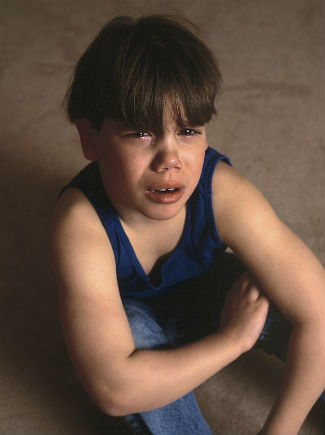By Debbie Pincus, MS, LMHC
Are you worried that your divorce is ruining your child’s life? Do you wonder how to still be able to parent your child effectively as you navigate this new change? While divorce is a big life event for kids, it’s important to remember that not all children of divorce will be negatively impacted. The key is how you handle them—and yourself. Read on for some helpful tips on how to parent your child after divorce.
Accept that things will get emotional
 It is completely normal and natural to mourn the end of a relationship, regardless of how amicable the split is. Grief happens even with divorce. You may feel overwhelmed, angry, sad, confused, scared and impatient. Make sure you remember to be mindful of how your child is feeling, too. Divorce can open up many of the same emotions in children.
It is completely normal and natural to mourn the end of a relationship, regardless of how amicable the split is. Grief happens even with divorce. You may feel overwhelmed, angry, sad, confused, scared and impatient. Make sure you remember to be mindful of how your child is feeling, too. Divorce can open up many of the same emotions in children.
She will go through her own grieving, as well as have worries about adjusting to two homes, each parent’s rules and expectations and what the future may bring. You don’t have to put on a brave face for your child—it’s okay to be honest with your feelings. Don’t overshare or turn your child into a confidant, though. This just forces her into an adult position where she may have to choose sides. Let your child know that you are feeling emotional but things will get better after time.
Remember to still enforce consequences
The biggest mistake that parents make after a divorce is not enforcing consequences. This usually happens because they feel guilty about what they have done to their child’s life. Unfortunately, this can become habit and their child will grow up without healthy boundaries while developing ugly behaviors. During or after a divorce you may notice your child acting out. There are a million reasons why kids act out after divorce:
- They don’t like change
- They feel out of control
- They feel angry, sad or scared
- They want their parents to get back together
- They want to test boundaries
- They feel like the divorce is their fault
- They have no idea how to cope
This is a normal way some kids try to manage the emotions they are feeling. The best thing you can do for her is to be consistent with appropriate discipline. Be empathetic, but the minute she crosses the line, give her the same consequences she’s always had. When everyone has calmed down, talk to your child about her feelings and really listen to what she has to say.
Stick to your parenting style
Often times divorce happens because two people can’t get along. One of the things you may encounter is differing opinions on how to parent your child. It’s frustrating when you and your partner can’t agree on parental rules, but unfortunately the only person you can control is you.
Unless there is abuse or neglect from them, you do not have control over how your ex will parent your child. When she is under your care, make sure she knows she is expected to follow your rules. Don’t worry what your partner does in his or her home. If there is a possibility for collaboration when it comes to parenting, make sure you establish rules that you both are comfortable with. If your ex complains about your style, say, “I’m good with how I’m doing things.” Don’t engage in an argument. As long as you are staying true to the values and lessons you want to teach your child, ignore the rest.
Be aware that kids play parents off each other
A classic by-product of divorce is that sometimes children will manipulate parents to feel more powerful. They’ll say things like, “Dad always lets me stay up late,” or “Mom says I don’t have to do that.” This often causes parents to become frustrated and sometimes feel guilty or uncertain about their individual parenting style. Don’t fall for it!
Take a deep breath and simply say, “When you’re in my house, you’ll follow my rules.” Make sure the discussion ends there. And remember to check in with your ex to keep up to speed with what’s going on. Don’t let your child be the messenger. If you have a concern, pick up the phone and call them directly. If you’ve found your child is lying about the other parent’s rules, say, “I called your Dad and he did not say that. Don’t lie to me again.” This lets your child know she can’t get away with manipulation.
By being aware of your emotions, as well as your child’s, together you can work toward strengthening your relationship in spite of divorce. To stay calm and avoid anxious parenting, realize that your child will be influenced by the relationships she has with her parents. You only have control over how you behave, so be mindful of that. If you can be a calm parent, your child will learn how to manage her own feelings and grow into a responsible adult.
Debbie Pincus, MS LMHC, has been a therapist and coach in the Greater New York area for more than 25 years. She is a renowned expert in the art and science of parenting calmly, not anxiously and works with children, individuals, couples, and families. She is the author of numerous books for young people on interpersonal relations, as well as the creator of The Calm Parent: AM & PM, and is a contributing expert on the popular parenting site Empowering Parents.
Photo Credit: 2012© Jupiter Images Corporation